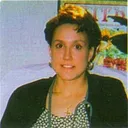Opportunities for Retired Physicians

Borislav Marinic/123RF.com
Virtually all physicians have, at some time(s), been able to keep putting one foot in front of the other because they were bolstered by imagining an idyllic retirement of the leisure afforded high earners. I thought that the rewards of practice were, and would always be, greater than the aggravations (“Family Medicine – Evolution and Rewards” 30 Oct 2014). Then EHRs invaded patient-physician relationships (“Electronic Health Records: The Scourge” 2 Mar 2017). At times, it may feel like one more day of EHRs and billing codes is intolerable. The workload shortchanges both patients and physicians of that which makes for the best care and physician fulfillment – relationships. There’s no time for those.
Eventually, long-anticipated retirement arrives. I’d like to warn you – as often occurs, reality is no match for imagination and unrealistic expectations. Many physicians spend early retirement in a state of shock. Are there really that many hours in the day? Restlessness and boredom set in quickly. You haven’t spent so much time with your significant other since…. ever. That may be an awakening. Income may not stretch as far as expected, or unforeseen obligations arise. There may be a yearning, still, to make a difference.
A return to work may be better than 24/7 leisure. You have a wealth of readily marketable skills. There are many nontraditional, nonclinical job opportunities for retired physicians, or you can create your own enterprise.
Writing/Editing
This is a great option if you’d like to work at home. There are countless websites that can use a physician’s expertise (contact us). Sites that provide responsible health/medical information may hire physicians to do the writing or to critique material for accuracy and readability before it is published. Continuing medical education courses may be written or reviewed by physicians. Writing test items for board certification is an option. Many of these positions require computer literacy. Search ‘medical writing’ or something similar and you’ll receive more opportunities than you can manage. Writing/editing is working for me. It helps that I have a degree in journalism.
Some physicians relish the time for creative writing. Suspense novels are popular subjects for physicians, but there are no limits on material or topics. It may take some footwork and time to find a publisher, but if creative writing is your passion, go for it!
Healthcare Administration
A healthcare administrator is concerned with handling the rules and regulations of a facility, as well as supervising staff. Understanding of clinical medicine and how healthcare is delivered enhance an administrator’s effectiveness, but these challenging positions also require skills that are different from those of a clinician. Many administrators have specialized degrees. The Bureau of Labor Services reports a 20% projected increase in healthcare administrator employment—but the BLS also reports that some healthcare facilities require a bachelor's degree or licensure in healthcare administration management.
Teaching
Even if you are feeling drained by the demands of practice, you may enjoy using and passing on your expertise. Many retired physicians teach undergraduate science courses. Some nursing schools are using retired teachers. The University of Texas Health Science Center at Houston has a program that uses retired physicians to teach nursing. It’s a way to combat the nursing shortage, some of which is the result of a lack of nursing teachers. It usually requires recent retirement and computer literacy.
Telemedicine
These positions are an option for physicians who want to work at home. The word sounds like something new, but medicine over a distance is nothing new. Technology has made the practice easier, safer, and more effective.
Volunteering
If financial concerns are not the primary reason for working, volunteering in the physician’s own community or internationally may be rewarding. Many physicians enjoy caring for the underserved at free clinics more than they enjoyed former paying positions. They say that not dealing with red tape and administrative problems is rewarding. Insurance paperwork and complicated tests are irrelevant.
International volunteering can take many forms. Volunteers may train local healthcare providers, set up continuing education workshops, lecture, or provide care. These opportunities may be as short as a few days or a commitment of a year or more. There are too many international volunteer organizations to list here, but a few of the better known are: 1) Medical Volunteers International (medvolunteers.org) 2) Health Volunteers Overseas (hvousa.org) 3) International Healthcare Volunteers (ihcv.org).
Hospitalist
This term was coined in 1996. A hospitalist cares for patients admitted to a hospital. S/he usually becomes familiar with a single location, working with the same staff in the same system. The schedule may be a few hours a week to full time. Some studies have shown that hospitalists can expedite care, reducing the length of stay and decreasing readmission.
Locum tenens
This means, literally, ‘to hold the place of.’ These positions use a substitute physician as needed, from one day to indefinitely. The work is easy to find, and the physician can often create the schedule s/he desires. Travel and working odd hours are requirements of some positions.
Return to practice via a reentry program
Returning to practice can be especially attractive if you have unforeseen expenses or if you retired with sub-optimal assets. Reentry may require some training, often continuing education, and SPEX – the Special Purpose Examination. There are several reentry programs in the United States. Some states provide the service, but some physicians may have to pay for it – usually more than $20,000. Consideration must be given, also, to the cost of malpractice insurance. Practices and hospitals may not be able to cover it if the physician has been out of practice for more than a couple years.
If you take one idea from this blog let it be this: Plan. If you do find yourself searching for work opportunities after retirement a good place to start might be right here.
Related Posts
